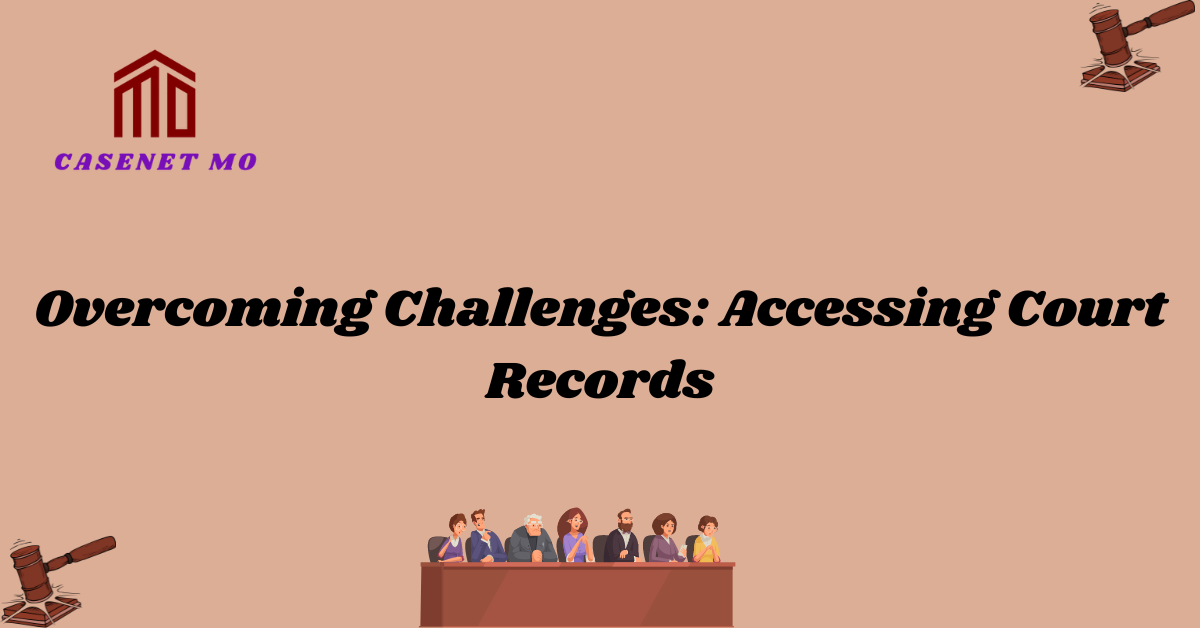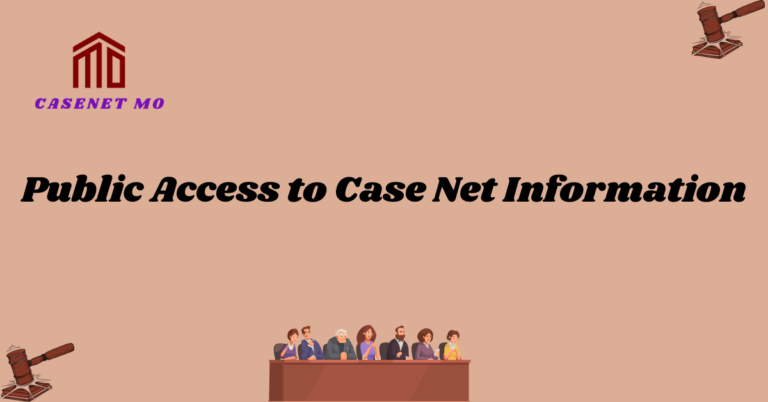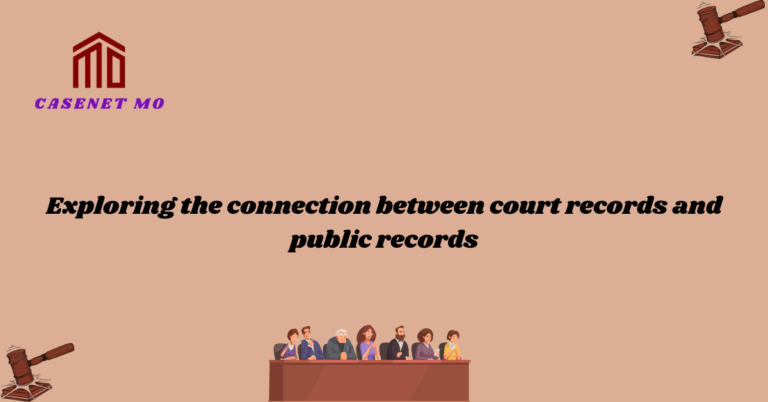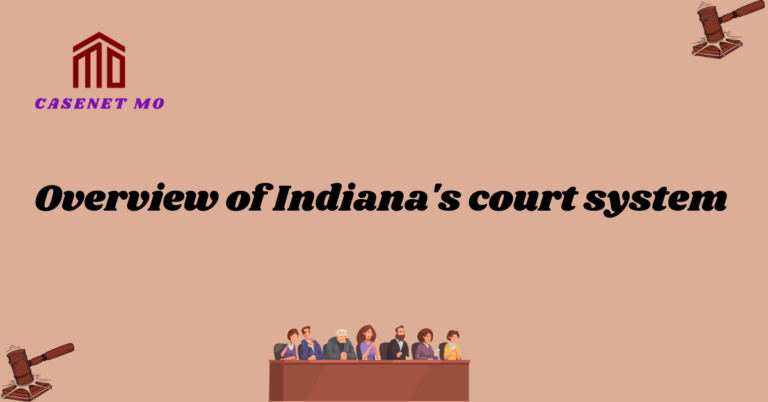Overcoming Challenges: Accessing Court Records
Accessing court records can be a challenging task, but with the right guidance and resources, you can navigate through this process smoothly. Whether you’re a legal professional, a researcher, or simply someone who needs to access court documents for personal reasons, understanding how to overcome these challenges is crucial.
One of the main obstacles in accessing court records is the lack of a centralized database. Unlike other public records, court records are often scattered across various jurisdictions and levels of the judicial system. This means that you may need to search through multiple online databases, visit different courthouses, or even request records by mail. However, with advancements in technology and the increasing digitization of court documents, the process is becoming more streamlined.
Overcoming the Lack of a Centralized Database
Accessing court records can be a challenging task due to the lack of a centralized database. Unlike other public records, court records are often scattered across various jurisdictions and levels of the judicial system. This means that individuals seeking court records may need to search through multiple online databases, visit different courthouses, or even request records by mail.
However, advancements in technology and the increasing digitization of court documents have made the process more streamlined. Online databases now offer a convenient way to search for court records from multiple jurisdictions in one place. These databases are continuously updated and provide access to a wide range of court documents, including case filings, judgments, and court orders.
By utilizing these online databases, individuals can save time and effort by avoiding the need to physically visit multiple courthouses or send requests by mail. The ability to access court records from the comfort of their own homes or offices is a significant advantage, particularly for those who are conducting research or preparing for a legal case.
Simplifying Legal Jargon and Terminology
Another challenge in accessing court records is the complexity of legal jargon and terminology used in these documents. Legal language can be filled with technical terms and unfamiliar phrases, making it difficult for individuals without a legal background to understand the content.
However, there are resources available that can help simplify and explain these terms. Online legal dictionaries and glossaries provide definitions and explanations for common legal terms, ensuring that individuals can comprehend the information they find in court records.
Additionally, legal professionals can offer guidance and assistance in deciphering legal jargon. Lawyers and paralegals possess the necessary knowledge and expertise to interpret complex legal language and provide explanations to individuals seeking court records.
By utilizing these resources and seeking help from legal professionals, individuals can overcome the challenge of understanding legal terminology. This ensures that they can effectively navigate through court records and extract the information they need.
The Importance of Persistence
Accessing court records may require persistence and determination. Sometimes the process may not be as straightforward as desired, and individuals may encounter hurdles along the way.
However, persistence is key to successfully accessing court records. It may require multiple attempts, visits to different courthouses, or following up with various authorities. By remaining determined and committed to the process, individuals can overcome these challenges and eventually gain access to the court records they seek.
It is important to understand that the legal system can be complex and bureaucratic, and delays or obstacles may arise. But by persevering and staying focused on the goal, individuals can navigate through these challenges and obtain the desired court records.
Utilizing Online Tools and Services
With the advancement of technology, several online tools and services have emerged to assist individuals in accessing court records more efficiently.
One such tool is the use of online document retrieval services. These services provide a convenient and time-saving solution by offering to retrieve court records on behalf of individuals. By providing the necessary information and payment, individuals can sit back and let the service handle the entire process, including searching for records, obtaining copies, and delivering them electronically or by mail.
Another helpful tool is the availability of online court record portals. These portals are established by various jurisdictions and provide access to court records from a specific locality or region. By registering for an account, individuals can search for and view court documents directly from these portals, eliminating the need to visit multiple websites or courthouses.
Furthermore, some online platforms offer comprehensive legal research databases that include court records. These platforms provide access to a vast collection of legal resources, including case law, statutes, regulations, and court filings. By utilizing these databases, individuals can conduct thorough research and access court records alongside other relevant legal materials.
Understanding the Benefits of Accessing Court Records
Accessing court records is invaluable in ensuring transparency and promoting justice. It enables individuals to stay informed about legal proceedings, track the progress of a case, and monitor the actions of the judiciary.
For legal professionals, accessing court records is essential for conducting thorough research, preparing legal strategies, and building strong cases. Lawyers, paralegals, and researchers rely on court records to gather evidence, understand precedents, and analyze the outcomes of similar cases.
Accessing court records also benefits individuals who are not directly involved in legal proceedings. It allows them to explore the judicial system, learn about their rights and responsibilities, and gain insights into the functioning of the legal system.
Additionally, court records play a crucial role in promoting transparency and accountability. They enable the public to scrutinize the actions and decisions of the courts, ensuring that justice is administered fairly and impartially.
Overall, the ability to access court records is a fundamental aspect of a transparent and democratic society. It empowers individuals to exercise their rights, promotes fairness in legal proceedings, and contributes to the overall integrity of the judicial system.
FAQs
Why is accessing court records a challenging task?
Accessing court records can be a challenging task due to several factors. One of the main obstacles is the lack of a centralized database. Unlike other public records, court records are often scattered across various jurisdictions and levels of the judicial system. This means that individuals seeking court records may need to search through multiple online databases, visit different courthouses, or even request records by mail. This decentralized nature of court records can make the process time-consuming and cumbersome.
How can technology help in accessing court records?
Technology has played a significant role in making the process of accessing court records more streamlined. With advancements in digitization, many court documents are now available online. Online databases have been established to centralize court records from different jurisdictions, making it easier to search and access relevant information. These databases allow users to search by case number, party names, or other relevant details, saving time and effort.
How can court records’ legal language be simplified?
Legal documents often contain complex jargon and terminology that can be difficult for individuals without a legal background to understand. However, there are resources available to help simplify and explain these terms. Legal dictionaries and glossaries specifically designed to clarify legal language can be accessed online or in print. Additionally, legal professionals such as attorneys or paralegals can provide assistance in interpreting legal jargon and explaining the content of court records.
How to Access Court Records Efficiently?
To navigate the process of accessing court records effectively, it is important to utilize online databases where available. These databases provide a centralized platform for searching and retrieving court documents. Additionally, seeking assistance from legal professionals, such as attorneys or legal researchers, can provide guidance and expertise in accessing specific court records. Familiarizing yourself with legal terminology and using available resources to simplify complex language can also contribute to a smoother navigation process.
Why is accessing court records important?
Accessing court records is important for a variety of reasons. For legal professionals, court records serve as crucial evidence and information for cases. Researchers may rely on court records to study legal trends or gather data for academic purposes. Additionally, individuals may need to access court records for personal reasons, such as conducting background checks or verifying legal proceedings. Access to court records promotes transparency in the legal system, ensures accountability, and supports the principles of justice.
Advantages of Responsive Layouts for Court Records?
A responsive layout in accessing court records improves the user reading experience by adapting to different screen sizes and devices. As individuals access court records through various devices, such as smartphones, tablets, or desktop computers, a responsive layout ensures that the content is displayed in a clear and readable manner. This enhances usability and accessibility, allowing users to navigate through the information seamlessly and efficiently.
Conclusion
In conclusion, accessing court records may present challenges, but with the right tools, knowledge, and persistence, you can overcome them. By utilizing online databases, seeking assistance from legal professionals, and familiarizing yourself with legal terminology, you can successfully navigate the process of accessing court records. Whether you’re conducting research, preparing for a case, or simply seeking information, the ability to access court records is invaluable in ensuring transparency and promoting justice.







